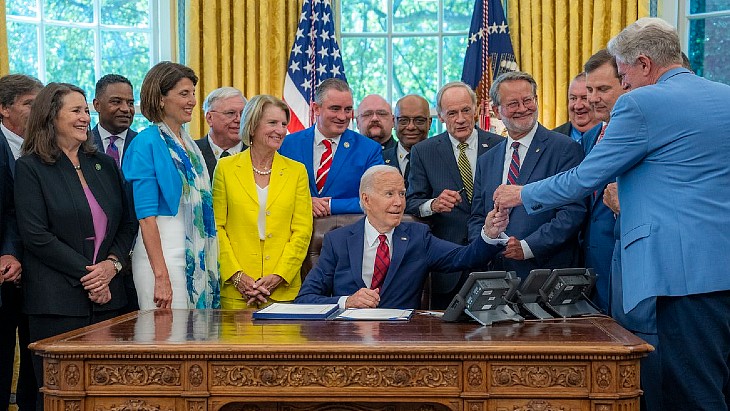IAEA notes improved Swedish nuclear security
The Swedish framework for physical protection and computer security at nuclear power plants, other nuclear facilities and for nuclear material in transport continues to show good progress, an International Atomic Energy Agency (IAEA) report concludes following a mission there last year.
An IAEA International Physical Protection Advisory Service (IPPAS) team completed a two-week follow-up mission in October 2016 to review the legislative and regulatory framework for nuclear security in Sweden. The previous IPPAS mission to the country was conducted in May 2011.
IPPAS missions are intended to help IAEA member states strengthen their national nuclear security regime through peer review advice and IAEA guidance. A team of international experts assesses a nation's physical protection systems, compares it with international best practices and recommends improvements. IPPAS missions are conducted both on a nationwide and facility-specific basis.
The purpose of the latest IPPAS mission, as agreed with the Swedish government, was to: assess progress in addressing the recommendations and suggestions identified in the 2011 mission; assess the current state of Sweden's nuclear security regime at a national level; and, assess the implementation of physical protection measures at the Ringhals nuclear power plant.
On completing the mission, the IAEA subsequently submitted its latest mission report to the Swedish government. The country's Radiation Safety Authority (SSM) has now made the report publicly available on its website.
According to the IAEA's report, Sweden has made good progress in implementing the recommendations of the previous IPPAS mission. It said it had identified several good practices, but made a number of new recommendations and suggestions for continuous improvement.
The mission found that many of the previous recommendations have led to tangible improvements to the Swedish system of physical protection. Examples include better collaboration between public authorities, development of more clearly defined requirements, and security measures taken at nuclear power plants.
The new recommendations relate to issues such as society's capability for sufficiently rapid and robust response to combat malicious acts, assigning priority to safety culture and conducting efficient and effective inspection work.
"The open, transparent and honest engagement with the State, [the] competent authority and the team at the Ringhals plant are indicative of a culture working to continuously improve," the IAEA report says. "Physical protection at the facility level is broadly in line with international consensus recommendations. At the national level, nuclear security culture could be strengthened within the overall organisational culture by strong leadership over the next several years to give an appropriate focus to nuclear security, especially as operators move to decommission some of the older nuclear power plants, to address the long standing issues."
SSM director Johan Anderberg said, "The results from the IPPAS mission are an important element of our work to continuously improve Sweden's nuclear security regime. We are currently working on an action plan for dealing with the new suggested improvements."
Researched and written
by World Nuclear News



_49215.jpg)





_66488.jpg)


